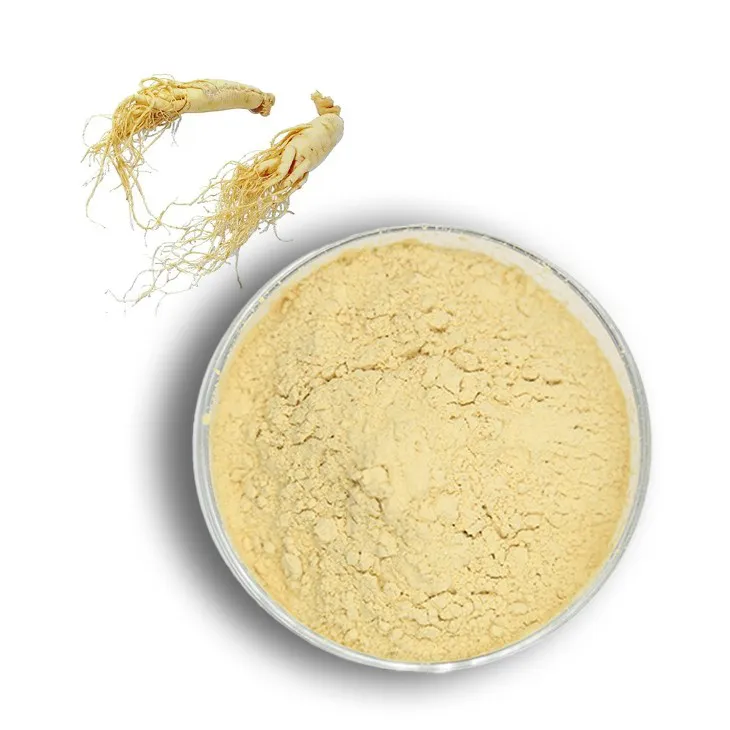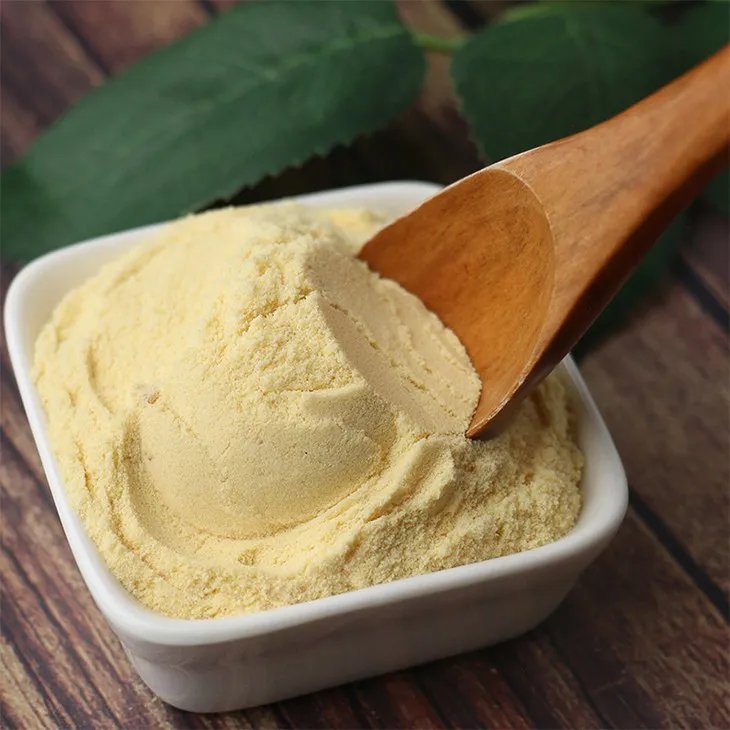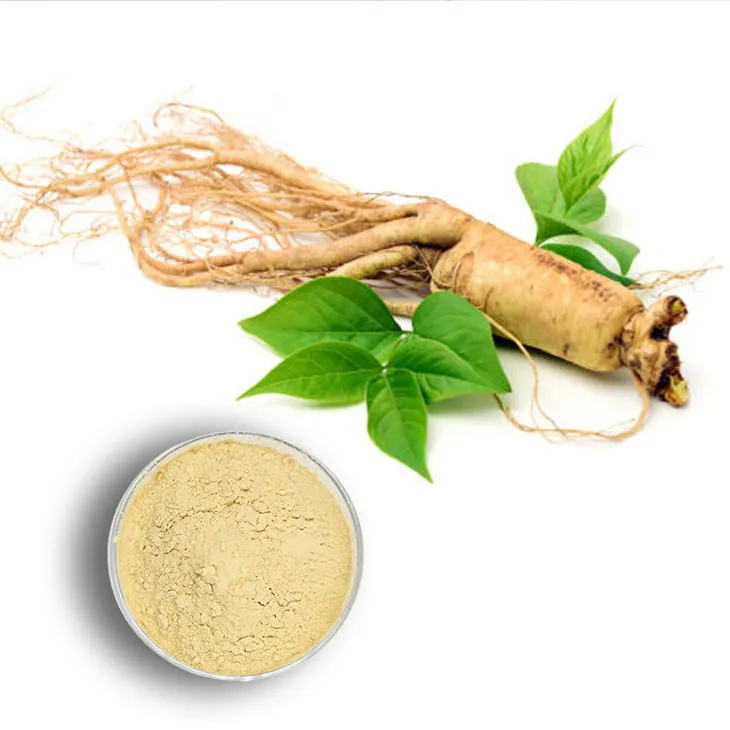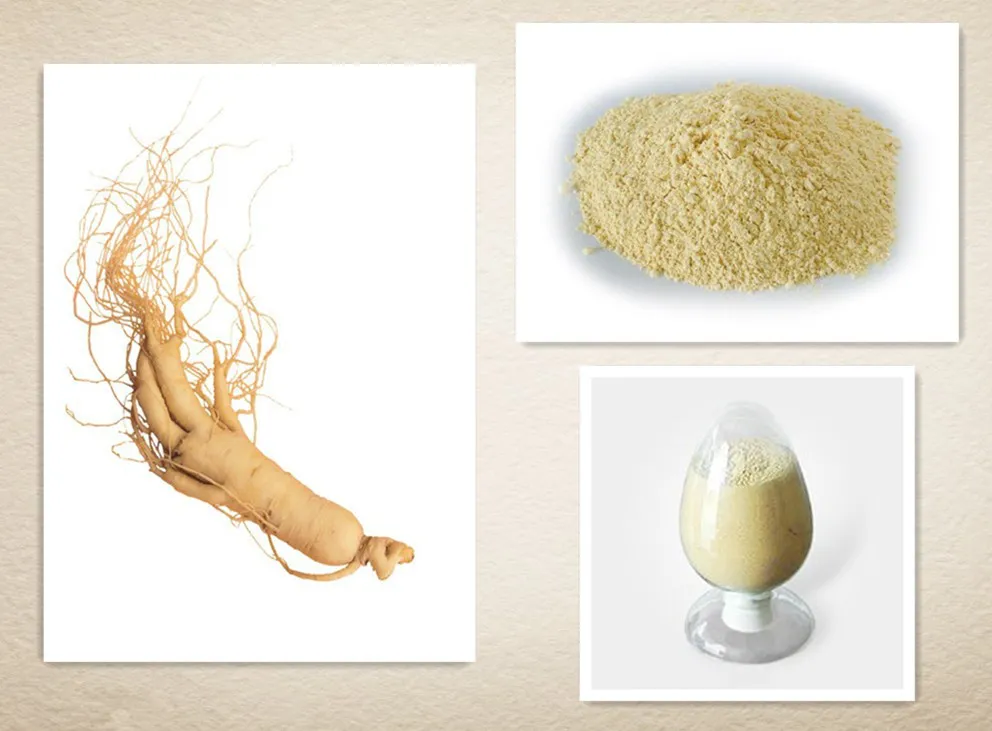- 0086-571-85302990
- sales@greenskybio.com
Ginseng root extract can reduce hypertension.
2024-11-12

1. Introduction
Hypertension, or high blood pressure, is a prevalent health condition that affects a significant portion of the global population. It is a major risk factor for various cardiovascular diseases, such as heart attacks, strokes, and heart failure. Conventional treatment methods often involve the use of pharmaceutical drugs, which may have side effects in some patients. In recent years, there has been growing interest in exploring natural alternatives for hypertension management. Ginseng Root Extract has emerged as a potential candidate, with various studies suggesting its possible role in reducing hypertension.

2. Efficacy of Ginseng Root Extract in Reducing Hypertension
2.1. Mechanisms of Action
- Vasodilation: One of the key mechanisms through which Ginseng Root Extract may reduce blood pressure is by promoting vasodilation. Ginseng contains active compounds such as ginsenosides, which can relax the smooth muscles in the blood vessel walls. This relaxation leads to an increase in the diameter of the blood vessels, thereby reducing the resistance to blood flow. As a result, blood pressure decreases. For example, in vitro studies have shown that certain ginsenosides can directly act on endothelial cells in blood vessels, triggering the release of nitric oxide (NO). NO is a well - known vasodilator that helps in widening the blood vessels.
- Regulation of the Sympathetic Nervous System: Ginseng root extract may also influence the sympathetic nervous system, which plays a crucial role in blood pressure regulation. The sympathetic nervous system is responsible for the "fight - or - flight" response, which can increase heart rate and constrict blood vessels, leading to elevated blood pressure. Ginseng has been shown to modulate the activity of this system, potentially reducing its over - activation. This modulation can lead to a decrease in heart rate and a reduction in the constriction of blood vessels, ultimately contributing to lower blood pressure.
- Antioxidant Effects: Oxidative stress is associated with hypertension. Ginseng root extract exhibits antioxidant properties due to its rich content of phenolic compounds and ginsenosides. These antioxidants can scavenge free radicals in the body, which are known to damage blood vessels and disrupt normal blood pressure regulation. By reducing oxidative stress, ginseng root extract may help maintain the integrity of blood vessels and improve blood pressure control.
2.2. Clinical and Pre - clinical Evidence
- Pre - clinical Studies: In animal models of hypertension, ginseng root extract has demonstrated promising results. For instance, studies on hypertensive rats have shown that treatment with ginseng extract can significantly reduce systolic and diastolic blood pressure. These pre - clinical findings provide a basis for further investigation in human subjects.
- Clinical Trials: A number of clinical trials have also been conducted to evaluate the effect of ginseng root extract on blood pressure in humans. Some of these trials have reported a modest but significant reduction in blood pressure in patients with mild to moderate hypertension. However, the results of these trials have been somewhat inconsistent, with factors such as the type of ginseng used, the dosage, and the duration of treatment potentially influencing the outcomes.

3. Safety of Ginseng Root Extract
3.1. General Safety Profile
Ginseng root extract is generally considered safe when consumed in appropriate amounts. It has been used in traditional medicine for centuries in many cultures. However, like any supplement or herbal product, it may cause side effects in some individuals.
3.2. Potential Side Effects
- Digestive Issues: Some people may experience digestive problems such as nausea, diarrhea, or stomach upset after taking ginseng root extract. These side effects are usually mild and may subside with discontinuation of the supplement or adjustment of the dosage.
- Allergic Reactions: Although rare, allergic reactions to ginseng root extract can occur. Symptoms may include skin rashes, itching, or swelling. Individuals with known allergies to plants in the Araliaceae family (to which ginseng belongs) should exercise caution when using ginseng products.
- Interactions with Medications: Ginseng root extract may interact with certain medications. For example, it may enhance the effects of blood - thinning medications, increasing the risk of bleeding. It can also interact with drugs used to treat diabetes, potentially affecting blood glucose levels. Therefore, it is important for patients taking medications to consult their healthcare providers before starting ginseng supplementation.

4. Ginseng Root Extract as a Natural Alternative in Hypertension Treatment
4.1. Advantages
- Natural Origin: One of the main advantages of ginseng root extract as a treatment for hypertension is its natural origin. Many people prefer natural remedies over synthetic drugs, believing that they may have fewer side effects and be more in line with their overall health and wellness goals.
- Potential for Multiple Health Benefits: In addition to its possible blood - pressure - lowering effects, ginseng has been associated with other health benefits. It may boost the immune system, improve cognitive function, and increase energy levels. This makes it an attractive option for individuals who are looking for a supplement that can address multiple aspects of their health.
4.2. Considerations and Limitations
- Lack of Standardization: One of the major challenges in using ginseng root extract for hypertension treatment is the lack of standardization in the product. Different ginseng products may vary in their ginsenoside content, which can affect their efficacy. This makes it difficult to determine the appropriate dosage and to compare the results of different studies.
- Not a Substitute for Conventional Treatment: While ginseng root extract may show potential in reducing hypertension, it should not be considered a substitute for conventional medical treatment. Patients with hypertension should continue to follow their doctor's advice regarding lifestyle modifications and the use of prescribed medications.

5. Conclusion
In conclusion, ginseng root extract shows promise as a natural alternative for reducing hypertension. Its potential mechanisms of action, including vasodilation, regulation of the sympathetic nervous system, and antioxidant effects, suggest that it may have a beneficial impact on blood pressure. However, the evidence from clinical trials is still somewhat inconsistent, and more research is needed to fully understand its efficacy. Additionally, while it is generally safe, potential side effects and interactions with medications should be taken into account. Overall, ginseng root extract may be a complementary approach for some individuals with hypertension, but it should be used with caution and under the guidance of a healthcare provider.

FAQ:
Q1: How does ginseng root extract reduce hypertension?
Ginseng root extract may reduce hypertension through several mechanisms. It might act on the blood vessels, causing them to relax. This relaxation can lead to a decrease in peripheral resistance, which in turn helps in lowering blood pressure. Some components in ginseng root extract may also interact with the body's hormonal and nervous systems that regulate blood pressure, for example, by modulating the release of certain neurotransmitters or hormones related to blood pressure control.
Q2: Is it safe to use ginseng root extract for hypertension?
Generally, when used appropriately, ginseng root extract is considered relatively safe for many people. However, it may have potential side effects in some individuals. For example, it can cause insomnia, headache, or digestive problems in a small number of users. Also, ginseng may interact with certain medications, such as blood - thinning drugs or medications for diabetes. So, it is crucial to consult a healthcare provider before using ginseng root extract, especially if you have pre - existing health conditions or are taking other medications.
Q3: How much ginseng root extract should be taken to effectively reduce hypertension?
The appropriate dosage of ginseng root extract for reducing hypertension can vary depending on factors such as the type of ginseng, the individual's overall health, and the severity of hypertension. There is no one - size - fits - all answer. In some studies, certain dosages ranging from a few hundred milligrams to a few grams per day have been investigated, but more research is needed to determine the optimal dosage precisely. It is best to follow the advice of a healthcare professional who can consider your specific situation.
Q4: Can ginseng root extract replace traditional hypertension medications?
At present, ginseng root extract cannot completely replace traditional hypertension medications. While it may have some blood - pressure - lowering effects, traditional medications have been extensively studied and proven to be effective in managing hypertension. However, ginseng root extract may potentially be used as a complementary therapy under the supervision of a healthcare provider. It could help enhance the overall effectiveness of the treatment plan or provide additional benefits in terms of improving overall health and well - being.
Q5: What are the long - term effects of using ginseng root extract for hypertension?
The long - term effects of using ginseng root extract for hypertension are not yet fully understood. Some short - term studies have shown promising results in terms of blood pressure reduction. However, long - term use may carry potential risks, such as cumulative side effects or interactions with other substances in the body over time. More research is needed to comprehensively evaluate the long - term safety and efficacy of ginseng root extract in treating hypertension.
Related literature
- The Effects of Ginseng on Blood Pressure: A Systematic Review"
- "Ginseng and Cardiovascular Health: An Overview of its Potential in Hypertension Management"
- ▶ Hesperidin
- ▶ citrus bioflavonoids
- ▶ plant extract
- ▶ lycopene
- ▶ Diosmin
- ▶ Grape seed extract
- ▶ Sea buckthorn Juice Powder
- ▶ Beetroot powder
- ▶ Hops Extract
- ▶ Artichoke Extract
- ▶ Reishi mushroom extract
- ▶ Astaxanthin
- ▶ Green Tea Extract
- ▶ Curcumin Extract
- ▶ Horse Chestnut Extract
- ▶ Other Problems
- ▶ Boswellia Serrata Extract
- ▶ Resveratrol Extract
- ▶ Marigold Extract
- ▶ Grape Leaf Extract
- ▶ blog3
- ▶ blog4
- ▶ blog5
-
Organic Tongkat Ali extract powder factory.
2024-11-12
-
How to make powder with ashwagandha extract.
2024-11-12
-
Rosehip extract manufacturers from China.
2024-11-12
-
The best cat's claw extract in nature.
2024-11-12
-
Chinese Dandelion Leaf Extract Suppliers.
2024-11-12
-
Black Rice Extract
2024-11-12
-
Plantain extract
2024-11-12
-
Cat Claw Extract
2024-11-12
-
Baicalin
2024-11-12
-
Scutellaria Extract
2024-11-12
-
Cocoa Extract
2024-11-12
-
Longan Extract
2024-11-12
-
Curcumin
2024-11-12
-
Citrus bioflavonoids
2024-11-12
-
Pueraria Lobata Extract
2024-11-12





















